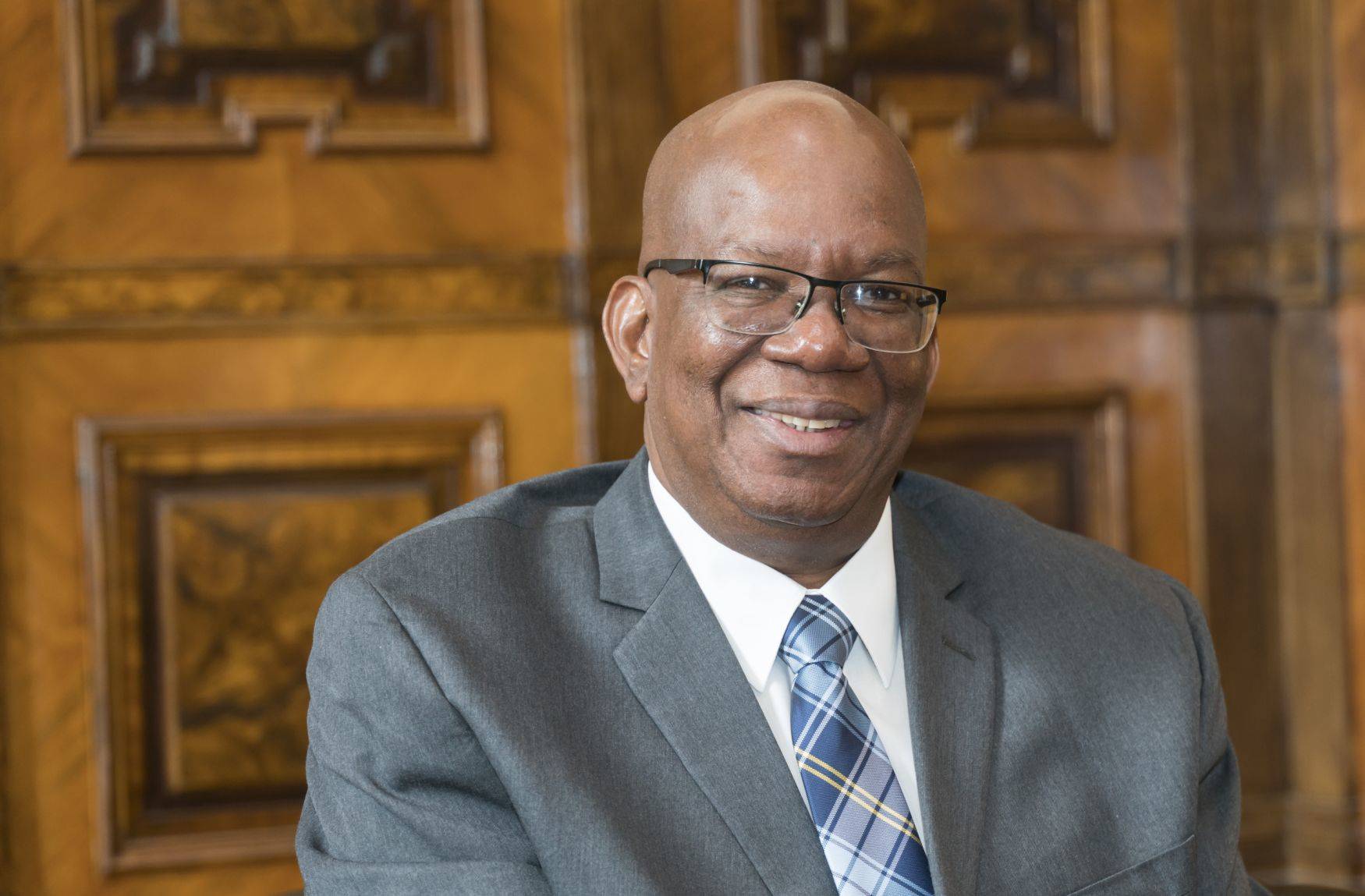We use Cookies. Read our Terms
- News
- COVID-19 and development
COVID-19 and development
Interview with Guyana’s Minister of Finance Winston Jordan

Guyana’s Minister of Finance Winston Jordan.
The OPEC Fund has supported development in Guyana, a South America country bordering Venezuela and Brazil on the North Atlantic coast, since the organization’s inception in 1976. In the summer edition of the OPEC Fund Quarterly magazine, we speak with Guyana’s Minister of Finance Winston Jordan. We discuss the country’s discovery of oil reserves, job creation, and what development actors can do to help in the age of COVID-19. Below are some edited highlights of what the minister has to say:
“We had envisaged scaling-up our investments in infrastructure to open up the country and to create an enabling environment for investment. We anticipated the expansion of the hospitality industry and the supply chain for the oil sector and spin-off benefits in retail, transport and communications. But as an open economy heavily dependent on trade, we are vulnerable to global shocks – whether these are economic, financial or health-related, such as COVID-19, or even climatic and weather-related.”
“As businesses falter and fail, government revenues have begun to decline, unemployment levels are beginning to climb, vulnerability and poverty are on the increase, as is the risk of hunger. So even as we experience falling revenue streams, we now have to allocate unplanned and massive sums of money for the health response to the pandemic, to providing social safety nets and to ring-fence businesses from liquidity problems.”
“We have had to interrupt our development program activity and put ourselves in crisis mode to respond to the new imperative.”
“Women, who are the caregivers in households, carry a double or triple burden: parent, homemaker and wage earner.”
“If anything, the pandemic has heightened awareness of the importance of improving the quality of jobs and the importance of a labor department to regulate and document jobs.”
“Development partners are essential to the transformation of Guyana, because they provide financial and knowledge products. They provide access to technology and to new ways of thinking and doing. To be more specific, we depend on our partners for assistance with:
a) Liquidity issues – Financing to replace lost revenues, and to assist in providing social safety nets.
b) Modernizing the health sector.
c) Securing food supply chains and food security for communities, especially in rural areas.
d) Protecting jobs, by assisting businesses to survive and thrive.
e) Creating new systems of teaching and learning.
f) Promoting secure electronic transactions.
g) Creating new skills and improving employability.
h) Expanding infrastructure to promote housing development, and
i) Developing reliable, affordable and renewable energy sources.
As you can see, our needs are many, and we are confident that our development partners can see the light at the end of the tunnel with Guyana and will be motivated to give us the support we need.”
OPEC Fund and Guyana
To date, the OPEC Fund has approved more than US$55 million for development operations in Guyana. The finance has gone toward strengthening Guyana’s energy, agriculture, financial and education sectors. More than half the funding has supported multi-sectoral development projects.
Thank you to Natalia Salazar, OPEC Fund Public Sector Officer, for facilitating this interview.
Main Story
Creating jobs and economic opportunity in developing countries can be challenging at the best of times, but during COVID-19, is it even possible?